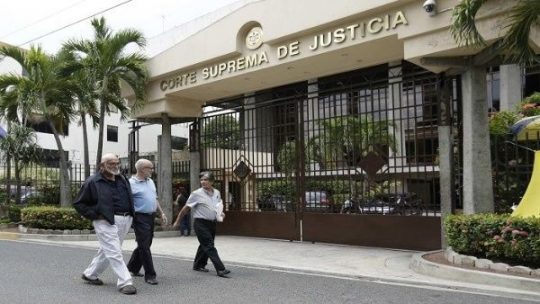By Celia Medrano (*)
In a case without precedent, a 10-year-old girl filed a Habeas Corpus appeal in favor of her mother, who had been arrested. The Constitutional Chamber of El Salvador’s Supreme Court has admitted the petition, basing its decision on the Law for the Comprehensive Protection of Children and Adolescents (LEPINA).
In Resolution HC 209-2020, the Chamber established the precedent for recognizing that children have human rights, including the right to petition for themselves before any constituted authority, and to receive a timely, consistent, and prioritized response. It has been common for state entities to treat children and adolescents as objects and not as subjects, that is, to consider that there is no reason why girls and boys should be consulted in decision-making that affects them, and that they are not capable of exercising their rights.
This stance was influenced by adult-centered approaches marked by an assistance-based focus. The mother’s case is being handled by the Court of Peace. Her hearing there has been delayed because the court is closed due to the national health emergency related to Covid-19. For that reason, her daughter presented the appeal. The appeal was accepted even though it was filed by email, not in person.
The Chamber stated that the current travel restrictions should not become an obstacle to citizens protecting their fundamental rights. The Chamber also states that “… while the appeal was submitted by a girl … that is no obstacle because the LEPINA law allows children and adolescents to pursue their fundamental rights, especially access to justice, and her request has been made within that framework. Standards of the Inter-American Commission on Human Rights (IACHR) and the United Nations Rules for the Treatment of Prisoners and Non-custodial Measures for Women, known as the Bangkok Rules, establish considerations based on a gender perspective and give priority to substitute prison measures linked to the best interests of children.
In this sense, the Chamber proposes that the health of the petitioner’s mother be considered, since being in a police holding cell, or being taken to a penitentiary center, would mean a high risk of contracting COVID19. It also suggested taking into account the fact that the mother is responsible for the care of her three children.
The Chamber states that adequate language should be used to explain to the petitioner the content of the personal exhibition order and precautionary measure decreed, and asks the Attorney General of the Republic, respecting the principles of progressive autonomy, to provide legal assistance and accompaniment during the rest of the process. An executing judge has been appointed to verify the facts and issue a report within a period not exceeding 5 days.
The ratification by the Salvadoran State of the international Convention on the Rights of the Child implied important changes in the way of understanding our children and adolescents. It meant incorporating this new vision in public policies based on principles of co-responsibility, the progressive exercise of rights and especially the best interest of childhood and adolescence.
The National System for the Comprehensive Protection of Children and Adolescents, understood not as an entity controlled by a government, but as a governing body and coordinator of state agencies and civil society, is obliged to take Resolution 209-2020 as a milestone in applying the doctrine of comprehensive protection of children, a doctrine that has taken years to formulate with the participation and consensus of many actors, including, of course, the children and adolescents themselves.

The Chamber assumes this approach, taking up what has been established by the Committee on the Rights of the Child, which regards it as a right, a procedural norm, and a fundamental interpretative principle.
In the midst of the circumstances dictated by the global pandemic, the rights of women and mothers who have been arrested must not be affected, since this would also affect the rights of their children, and would mean losing the focus on something we should never lose sight of: the human rights of children and adolescents. It was a girl who reminded us of it.
* @celiamedrano15 Salvadoran journalist who specializes in human rights and peace education.




